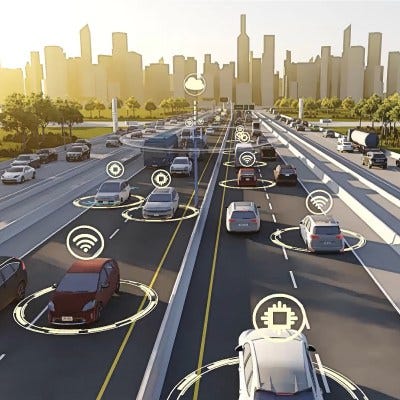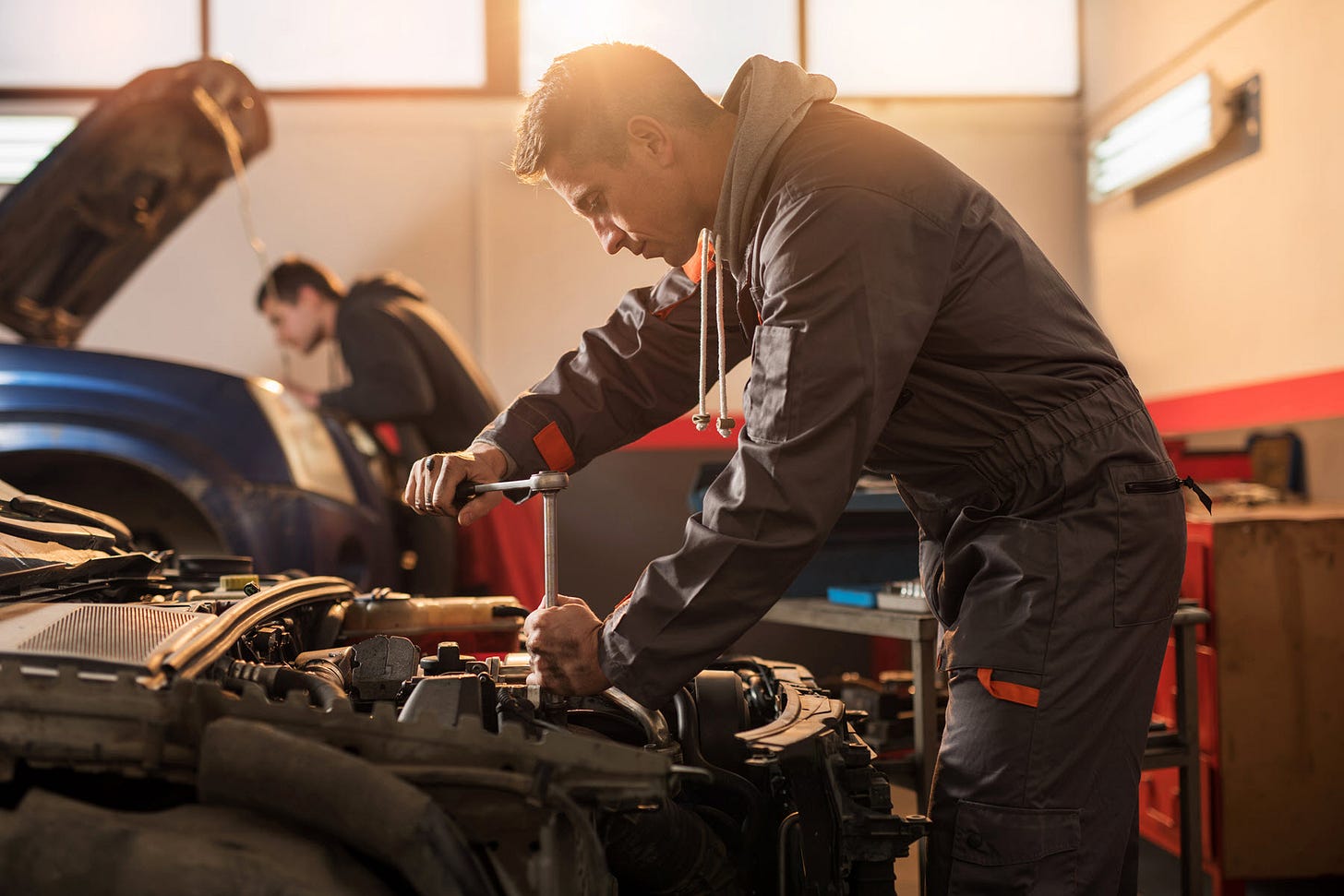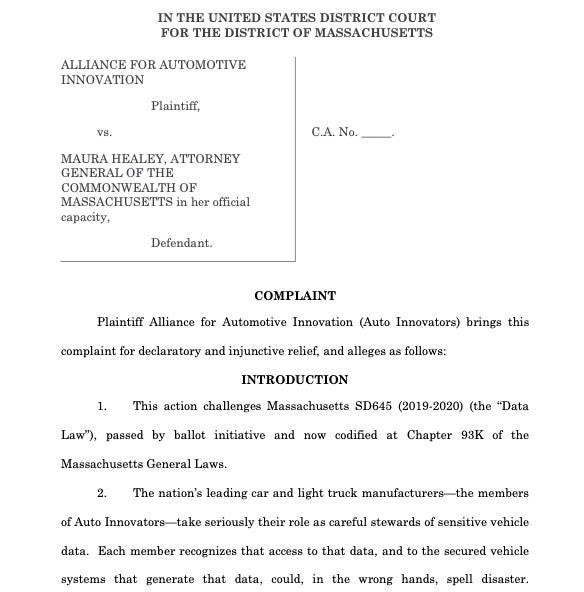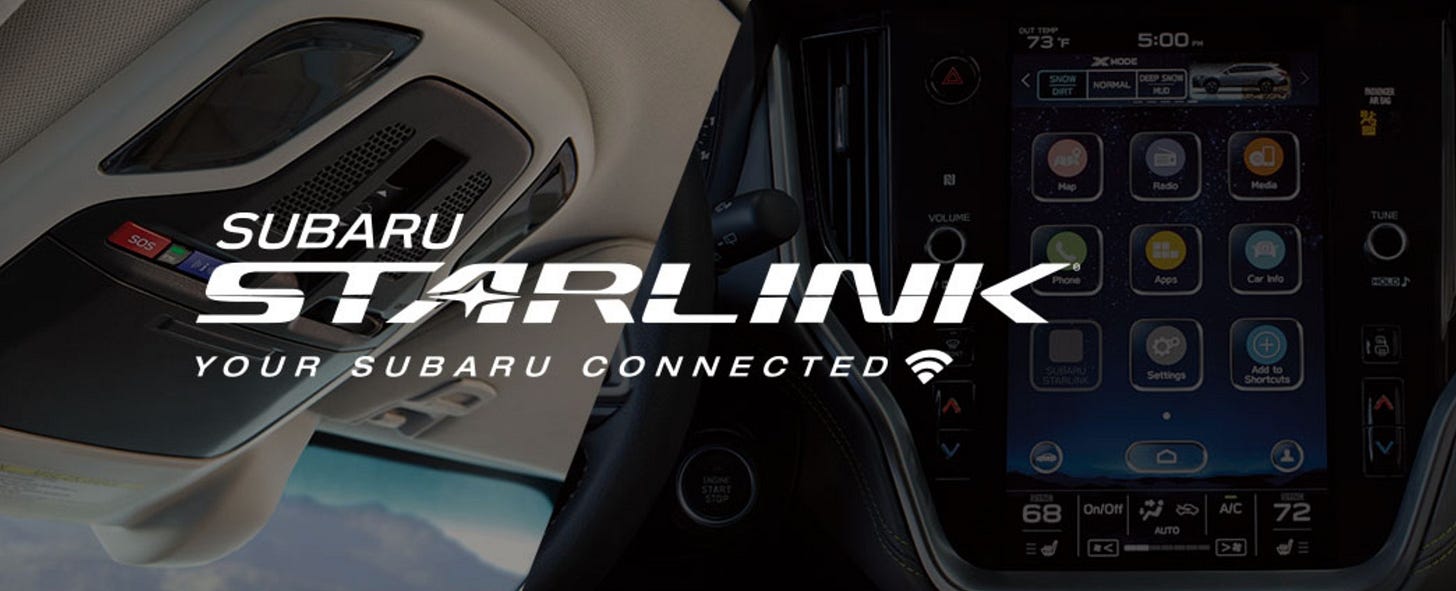
Thanks for finding Full Throttle. Please share and subscribe here. Full Throttle posts twice a week. Follow me on Twitter, Instagram, and Linkedin.
Tesla has led the way to the “connected car.” Software downloads from the internet improve systems and performance of the vehicle. What’s not to like? But this data-sharing is not a one-way street. Your vehicle is sending data back to the carmaker. You are now the product. Where you drive, when you go there, and how long you stay is data collected by the carmaker.
Several years ago I was talking to the CEO of one of the big three automakers. We started chatting about this data from connected cars. He claimed his company, along with being a vehicle manufacturer, would become an “information company.” Your data is worth money! A lot of money.

(Credit: Cintra)
THE VALUE OF DATA
A year ago, the consultants McKinsey & Company suggested your data, and that of everyone else driving a connected car, could be worth $250 billion to $400 billion a year for the auto industry by the end of this decade. As mentioned, you become the product creating additional revenue for that automaker. Stellantis, the maker of Chrysler, Dodge, Jeep, Fiat, and Alfa Romeo, believes its share of connected car and subscription revenue is $22 billion by 2030.
It’s in the fine print when you buy that connected car. It’s kind of like those “terms of service” agreements you click “accept” in the latest app on your phone. Your rights to your data are signed over to the automaker. The European Union has taken a different path with a mandate declaring personal data belongs to the car owner.
THE "RIGHT TO REPAIR"
How important is this data to the car companies? Consider what is happening right now in Massachusetts. The issue has been dubbed, “right to repair.” In 2020, Massachusetts voters overwhelmingly approved a law, promoted by the auto repair business, that allows those mechanics and owners to have access to the vehicle’s data for repairs. Owners and repair shops have long been able to use an OBD port (on-board diagnostics) to plug in a reader and get a code describing a problem.

(Credit: Autocare.org)
The connected car, according to independent mechanics, has real-time diagnostics that are transmitted wirelessly to the manufacturer that the owner and repair shop can’t access.
The auto manufacturing industry is so concerned about this law, and requirement to hand over data that it sued the state of Massachusetts. The judge hearing the case says he will issue his ruling by the middle of next month.

SUBARU SHUTDOWN
In the meantime, Subaru has taken the extraordinary step of shutting off some of its systems in new cars that are on the showroom floors of Massachusetts. In a statement, Subaru says it, “recently stopped offering our telematics product to customers in Massachusetts on 2022 Subaru vehicles.”

(Credit: Subaru)
That means that some of the latest technology in the car is shut off, including connections to music, roadside assistance and some of the sensors that assist the driver. Subaru says it took the action to avoid violating the Massachusetts law.
The company argues it can’t comply with the law as written because, “the data platform that the new law requires to provide the data does not exist and will not exist any time soon.” Subaru argues the “telematics” data isn’t needed to repair a car.
GOVERNMENT OVERSIGHT?
Last July, President Biden outlined what he called his executive order "promoting competition." It addressed the "right to repair." (Credit: White House)
President Biden stepped into the fray last summer, calling for more competition in the US. Specifically, he said Americans should be able to fix their computers, phones, and cars.
In signing an Executive Order, the White House said it is trying to, “make it easier and cheaper to repair items you own by limiting manufacturers from barring self-repairs or third-party repairs of their products.”
Connected cars mean plenty of data, which could mean more dollars for carmakers. The debate ahead is, do you really own everything you paid for after purchasing a new connected vehicle?
(Cover graphic credit: Getty Images)




